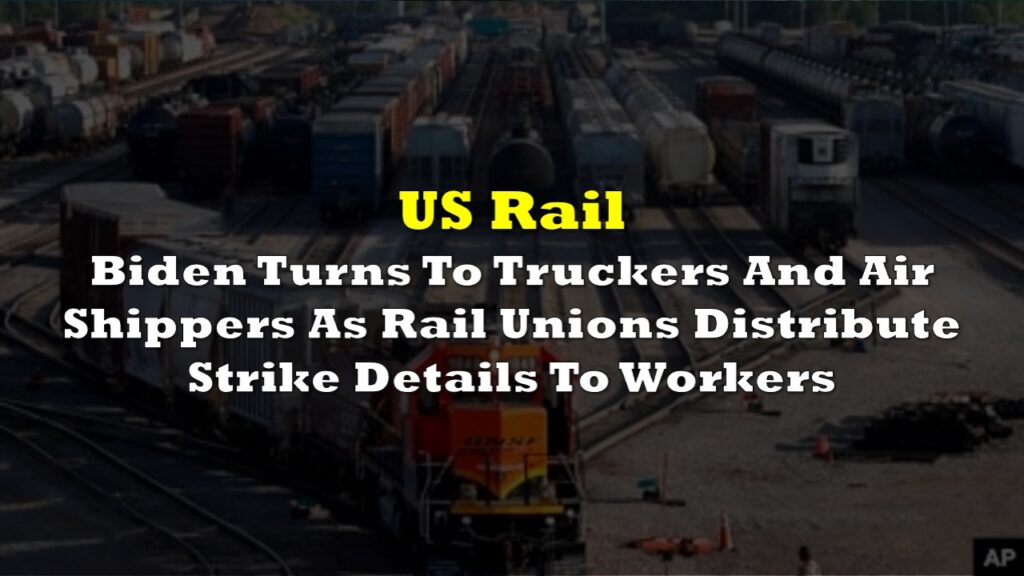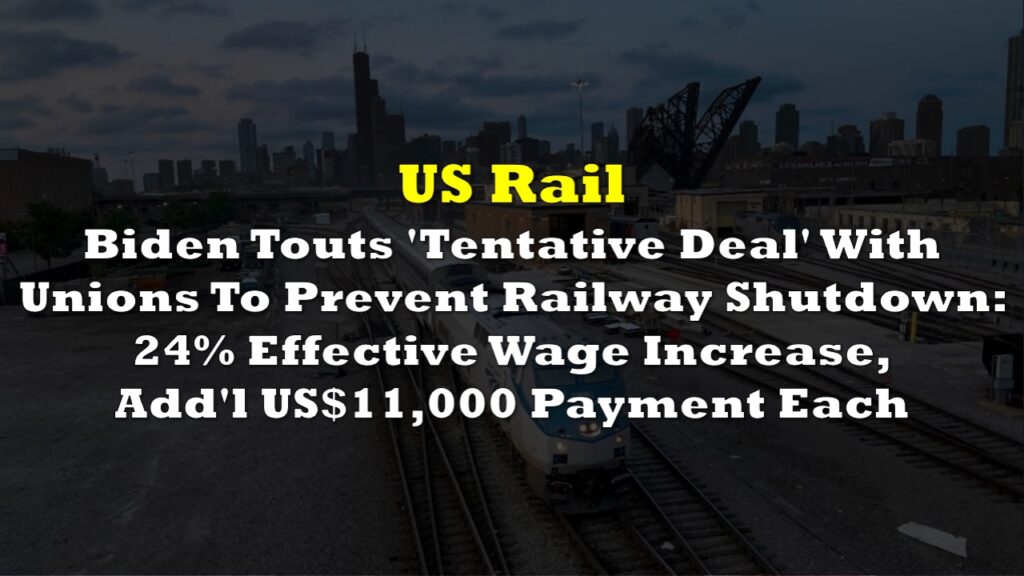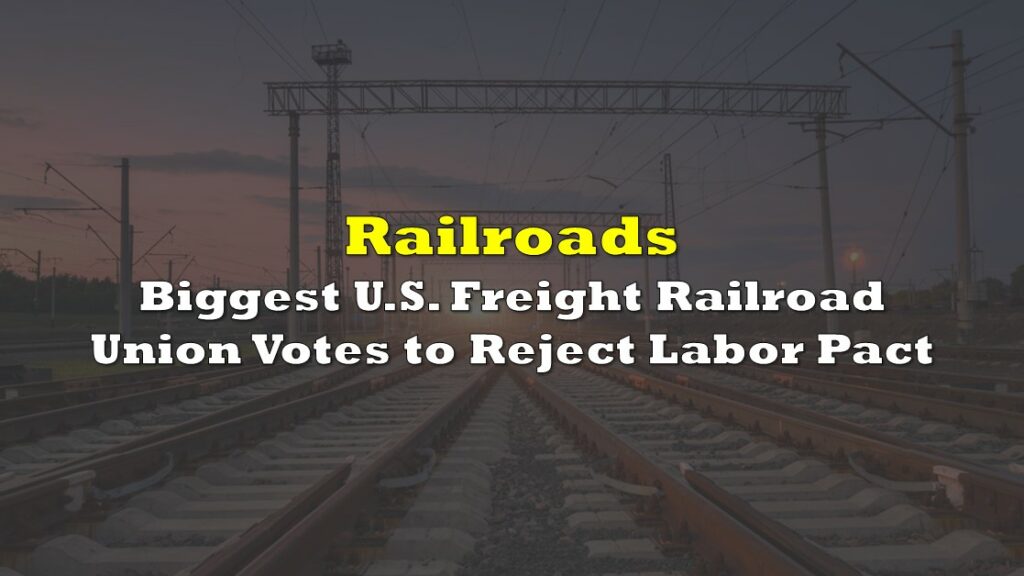The House passed legislation to avert a potentially catastrophic rail strike, which President Joe Biden said might harm the US economy only weeks before Christmas.
Voted 290-137 with broad bipartisan support, the bill now moves to the Senate, where both Majority Leader Chuck Schumer and Minority Leader Mitch McConnell have stated that lawmakers must intercede this week.
“Leader McConnell and I both want to pass it quickly,” Schumer said. “We understand the time deadlines, and we’ll be working together and figure out the best way to get it done quickly.”
However, senators have only a few days to act before railway workers go on strike on December 9 if a new agreement isn’t struck, and some politicians are threatening to stymie the process.
Four of the 12 railway unions rejected the White House-brokered agreement this year, prompting Biden to call on Congress to intervene after talks between employees and their bosses appeared to stall. While the deadline of Dec. 9 is still more than a week away, railroads must alert shipping companies a week earlier, by this Friday, if a strike is planned.
House Democratic leaders devised a novel method to accommodate the concerns of their caucus’ progressive members. House Speaker Nancy Pelosi announced earlier that the House would vote on rail legislation, which would ratify a tentative agreement struck by the White House in September between train businesses and labor leaders.
However, on a much narrower 221-207 vote, the House backed a bill Wednesday that would add seven days of paid sick leave to the agreement. Both proposals have now been referred to the Senate, which will have the final say on how to proceed.
In an interview, Transportation Secretary Pete Buttigieg stated that it is “critical” that the Senate accept the House-passed labor agreement, describing a rail shutdown as “basically the same as the economy shutting down.” He added that a rail strike would affect every part of the US economy almost immediately, from drinking water to agriculture to the auto industry.
“This is not a time when we can afford to have a lot of maneuvers, any kind of long and winding road or any kind of politics introduced here. The American economy … really cannot handle the consequences of a shutdown, and we can’t let it even get close,” he said.
A strike might have serious economic effects. In the first two weeks, up to 765,000 people could be “put out of work,” according to Biden.
Under the Railway Labor Act of 1926, Congress has the right to halt a strike and impose a labor agreement on the workers in order to prevent the disruption of interstate commerce during labor disputes.
Biden urged the Senate to “move quickly” after the House vote on Wednesday. “Without action this week, disruptions to our auto supply chains, our ability to move food to tables and our ability to remove hazardous waste from gasoline refineries will begin,” he said.
Information for this briefing was found via NBC News and sources mentioned. The author has no securities or affiliations related to this organization. Not a recommendation to buy or sell. Always do additional research and consult a professional before purchasing a security. The author holds no licenses.








